Ata-ul-Haye Nasir, Al Hakam
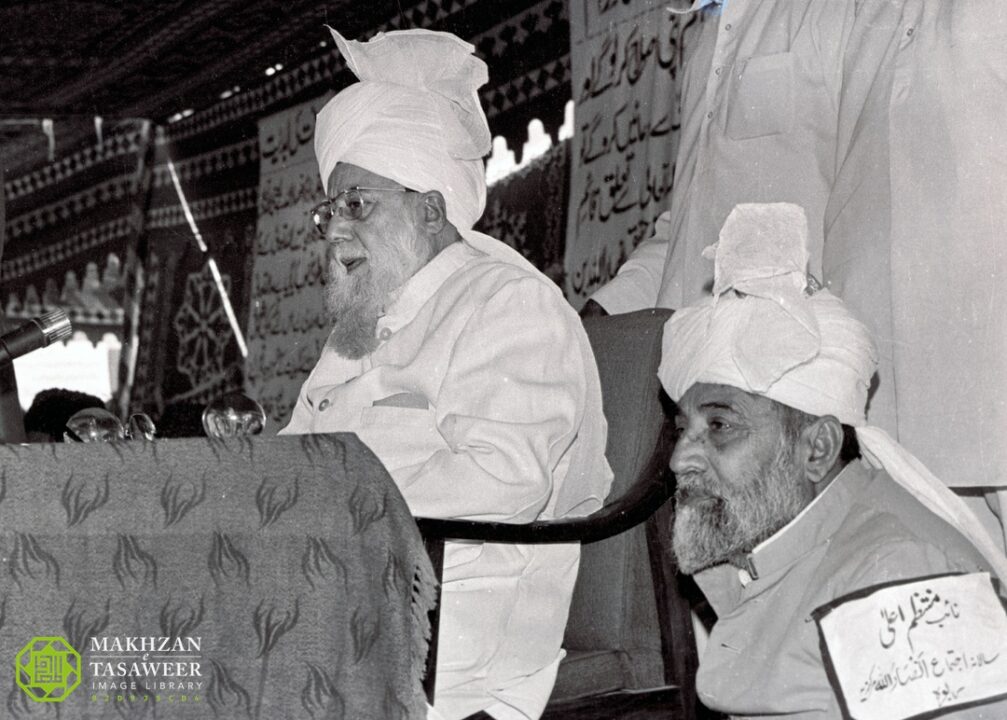
Last year (in the 25 December 2020 issue), Al Hakam published an article about the early years of Waqf-e-Jadid during the time of Hazrat Khalifatul Masih IIra. This article will present the history of Waqf-e-Jadid during the time of Hazrat Khalifatul Masih IIIrh.
On 4 January 1966, Hazrat Khalifatul Masih IIIrh delivered a special message for members of the Jamaat in which he instructed them to partake in the new year of Waqf-e-Jadid with a new zeal and passion. Huzoorrh stated:
“Waqf-e-Jadid is still an eight-year-old budding [scheme], but in such a short time, it has proven to be a very blessed scheme. Wherever work has been initiated under Waqf-e-Jadid, it has given very fruitful results. But there are many jamaats where the work still needs to be done, and for this, great efforts filled with sincere prayers are needed. […] The work of Waqf-e-Jadid needs to be expanded in both Western and Eastern Pakistan, which needs much more resources than before and sincere devotees are needed in more numbers.” (Al Fazl, 6 January 1966, p. 1)
On 20 January 1966, Waqf-e-Jadid Anjuman Ahmadiyya organised a ceremony at its central office for the first batch of mu’allimeen [missionaries of the Waqf-e-Jadid scheme] who completed their training. The event was graced with the presence of Hazrat Khalifatul Masih IIIrh. Huzoorrh distributed prizes amongst the mu’allimeen who got first and second positions in the exam held at the end of their training.
This was followed by Huzoor’s address in which he advised the mu’allimeen in regard to their national duties.
Huzoorrh stated:
“You should never forget that while, on the one hand, we dedicate our lives for the service of religion, on the other hand, we also believe that the world cannot be separated from religion. The duties which are incumbent upon a person from God Almighty, include an important duty to fulfil those rights that are incumbent for being a human being or for having a relation with the citizens and people of the country.
“Our nation has been ruled by foreigners for a long time, thus in comparison to the other independent countries, [our nation] is in dire need to be reminded about the citizen’s rights and duties.” (Al Fazl, 6 March 1966, p. 2)
Huzoorrh added:
“Those countries and nations that are vigilant get ready to tackle any kind of emergency situation, but such a mindset is not found in our country. However, our country should have such mindset more than the non-Muslim countries, because Islam has not only taught us about this, but also emphasised and guided us about this to such an extent that the Holy Prophetsa said:
حب الوطن من الايمان
“Meaning, ‘Love of the country is part of one’s faith’.
“And it is your religious duty to never ignore the fulfilment of those rights that are incumbent upon you from your country.” (Ibid)
Huzoorrh continued by stating that Islam has also enlightened its followers as to how to get rights as citizens without creating any disorder in the country. Thus, we must get our due rights, but for this, we should always use a peaceful way, and should always avoid those ways that might lead towards disorder.
Huzoorrh further said that nowadays, the work of tarbiyat had become as important as the work of irshad [guiding others].
Huzoorrh instructed to pay attention towards learning the Holy Quran with translation and stated:
“The Holy Quran is a source of our spiritual nourishment. We cannot have a [spiritual] life without this. The Holy Quran is dear to us [and] we have a great love for this [holy] book, because it consists of immensely beautiful and perfect teaching.” (Ibid, p. 3)
While instructing the mu’allimeen, Huzoorrh said:
“An important and necessary duty for you in the field of tarbiyat is to assess in your respective halqa [locality], or whichever halqa you visit, how many children do not know how to read the Holy Quran. Then, you should make an effort to teach the Holy Quran to them all.” (Ibid, p. 4)
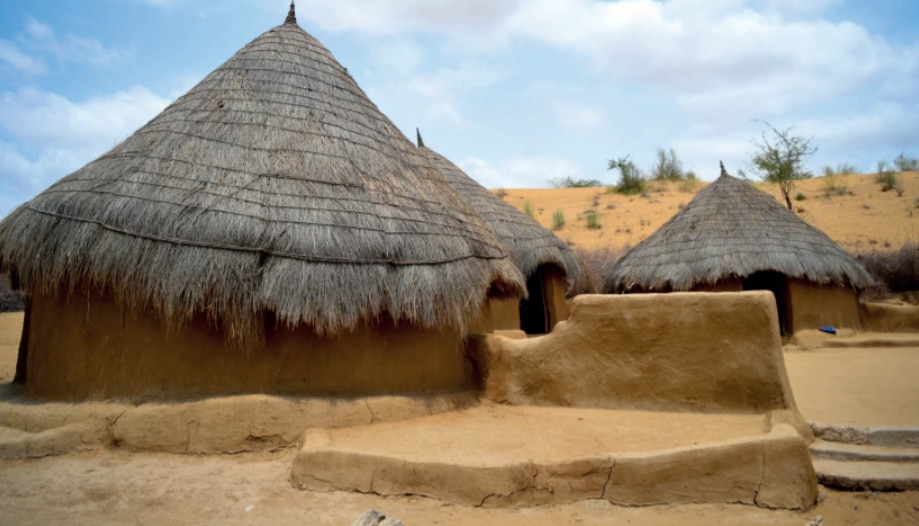
Huzoorrh further shed light upon the importance of prayers [dua] for the success of our efforts, and stated that prayers have a big role in our works.
Then, on 12 April 1966, Huzoorrh issued another message regarding Waqf-e-Jadid, in which he stated:
“With this announcement, I instruct members of the Jamaat to help the Waqf-e-Jadid promises to reach at least 600,000 [rupees], in accordance with the desire of Hazrat Al-Musleh al-Maud, Khalifatul Masih II[ra]. […] Every member who is participating in the Waqf-e-Jadid scheme should try to double their chanda for Waqf-e-Jadid this year. And those members who are still not part of this scheme, should certainly reap the blessings of taking part in this scheme, so that the budget of Waqf-e-Jadid may reach 600,000 [rupees].” (Al Fazl, 23 April 1966, p. 1)
On 7 October 1966, during his Friday Sermon, Huzoorrh announced the establishment of Daftar Atfal of Waqf-e-Jadid so that the Ahmadi children could also get the blessings of participating in this financial sacrifice.
While addressing the Ahmadi children, Huzoorrh urged them to participate in this scheme, and stated that they should ask their parents to give them eight annas [half a rupee] monthly, so that they could also partake in this blessed scheme.
Huzoorrh stated:
“Today, I appeal to all Ahmadi children (boys and girls): O spiritual progeny of God and His Messengersa, come forward, and fill the gaps which have been left in the work of Waqf-e-Jadid by your elders due to their laxity, and remove the weakness which has occurred in the work of this scheme.” (Al Fazl, 12 October 1966, p. 4)
On 22 October 1966, while addressing the annual ijtema of Lajna Imaillah Markaziyyah, Hazrat Khalifatul Masih IIIrh said that the children should also be encouraged to participate in financial sacrifices.
Huzoorrh said that if the Ahmadi parents were able to perform the tarbiyat of their children in such a way that they themselves presented eight annas every month for the Waqf-e-Jadid scheme, it would be a great contribution to the overall collection of the chanda of Waqf-e-Jadid.
Huzoorrh continued by saying:
“But this matter needs complete attention, and the importance of this matter needs to be inculcated in children’s minds. You cannot inculcate the importance of Waqf-e-Jadid among your children until and unless you yourselves fully realise its importance.” (Al Fazl, 11 February 1968, p. 3)
Huzoorrh added:
“We need at least 1,000 devotees. […] These devotees will not be sent down from the heavens by Allah; rather, they will be the devotees who have been brought up by you, or are currently in your guardianship.
“If you do not pay attention towards this and do not urge your children to devote their lives for Waqf-e-Jadid, then this important and necessary scheme will not see success, God forbid. Allah the Almighty has saved us from failures in the past, and I believe that He will save us from failure in this instance as well. But then, there will be some other mothers whose children will come forward to take care of Waqf-e-Jadid.” (Ibid, p. 4)
Huzoorrh elaborated in regard to his instruction for children to pay eight annas per month, that those households that are not financially strong, or for instance have eight or 10 children and every child cannot pay eight annas, those children were allowed to donate eight annas collectively.
On the occasion of Majlis-e-Mushawarat in 1966, the Waqf-e-Jadid budget was approved to be 177,000 rupees. By October 1966, the promises of 140,000 rupees were received. At this, Hazrat Khalifatul Masih IIIrh encouraged members of the Jamaat to increase their promises for the chanda of Waqf-e-Jadid, and urged those members who had not participated in this financial sacrifice to partake in this scheme.
In January 1967, the annual Talimi Class of mu’allimeen of Waqf-e-Jadid was held. The concluding session took place on 3 February 1967, presided over by Hazrat Maulana Abdur Rahman Fazil, then Amir Jamaat-e-Ahmadiyya Qadian.
While presenting the annual report, Hazrat Sahibzada Mirza Tahir Ahmadrh, Nazim Waqf-e-Jadid said that at that time, there were at least 6,000 people being preached to in West Pakistan, and 517 people in East Pakistan (now Bangladesh), and they were collectively given a total of 17,759 Jamaat books and magazines. 56 muallimeen were serving in different centres of East and West Pakistan. During the year 1966, the message of Islam Ahmadiyyat reached 1524 villages, and 568 people, including 140 non-Muslims, accepted Islam Ahmadiyyat with the efforts of Waqf-e-Jadid. (Tarikh-e-Ahmadiyyat, Vol. 24, p. 21)
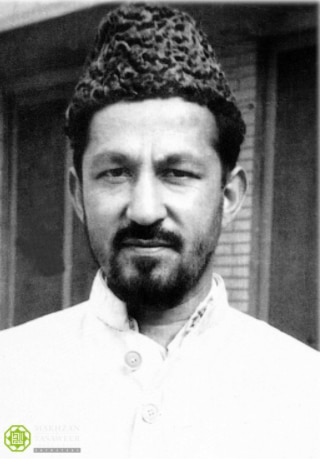
During his Friday Sermon of 7 January 1972, while announcing the new year of Waqf-e-Jadid, Hazrat Khalifatul Masih IIIrh stated:
“We are those who have witnessed the living manifestations of the living God, and have a firm belief that we – as a Jamaat – have been established by Allah the Almighty. Just like He has created us as individuals, similarly, He has established us as a Jamaat. And the objectives for which He has established us and the paths He wishes for us to take are clear in the words ‘qad hadana subulana’ [Surah Ibrahim, Ch.14: V.13]. ‘He has shown us our ways’. […]
“The ways of our sacrifices and services vary in different circumstances. Thus, God Almighty teaches new avenues to His servants and His beloved jamaats, and teaches them new ways, and grants them progress after progress through new ways.
“Therefore, in the shape of Waqf-e-Jadid, Allah the Almighty has put in front of us a similar kind of way, avenue, pathway or sirat-e-mustaqim [right path]. And the spirit of Waqf-e-Jadid is to expand the service to mankind with the spirit of devotion.” (Tarikh-e-Ahmadiyyat, Vol. 28, p. 3)
Huzoorrh continued by instructing the Jamaat that more people should come forward to serve under the scheme of Waqf-e-Jadid and a plan should be made in order to increase the number of devotees every year. Moreover, Huzoorrh said that more effort needed to be exerted in publications and distribution of literature under the Waqf-e-Jadid scheme.
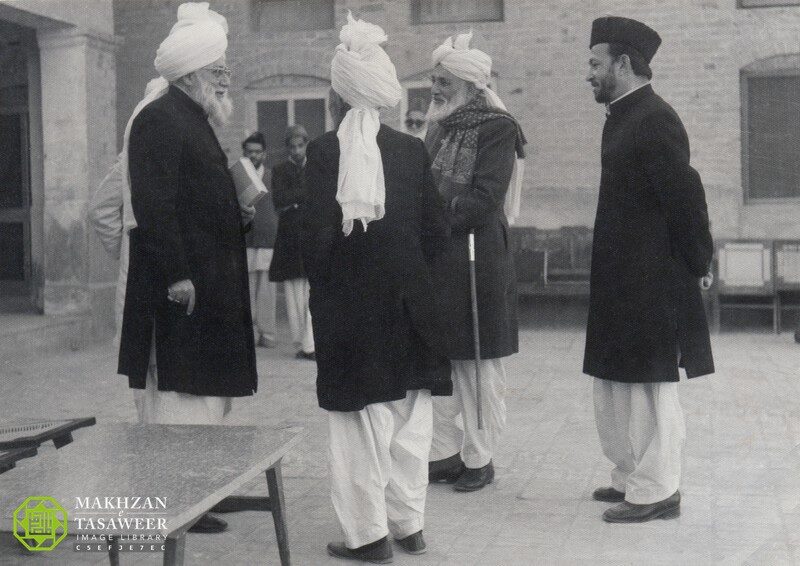
During his Friday Sermon on 18 January 1974, Hazrat Khalifatul Masih IIIrh said:
“Waqf-e-Jadid is a special scheme of Hazrat Musleh-e-Maudra. It has not yet expanded a lot, but its results are very pleasing […] Under the system of Waqf-e-Jadid, efforts are currently being made to spread Islam in those areas [of Pakistan] where Hindus are residing. Although it is a small effort, but in return, the signs of the acceptance of these efforts are that many Hindus of those areas are greatly inclined towards Islam, and hundreds of Hindu families have joined Islam by reciting the Kalima-e-Tayyibah, and now invoke durood upon the Holy Prophet Muhammadsa, and have a relation of love with the One and Only God.” (Khutbat-e-Nasir, Vol. 5, pp. 388-389)
Huzoorrh added that by the grace of Allah the Almighty, the efforts of mu’allimeen of Waqf-e-Jadid were proving very fruitful. They were also fulfilling the task of tarbiyat as well, by teaching the children how to read the Holy Quran and its translation to the youth. In this way, thousands of Ahmadis were benefitting from Waqf-e-Jadid.
Huzoorrh further expressed his desire that more Ahmadis should dedicate their lives for this cause, as the work of Waqf-e-Jadid was expanding day by day.
Huzoorrh said that during the previous year, there was an increase of around 50,000 rupees in the donations of Waqf-e-Jadid, so members of the Jamaat should put an effort to contribute an extra amount of 100,000 rupees this year as well, and then the extra amount should be spent in those areas where Hindus were accepting Islam.
During his Friday Sermon on 3 January 1975, Hazrat Khalifatul Masih IIIrh said:
“During the previous year, there was an increase of 25% in the work of Waqf-e-Jadid, and that too in such turbulent times, when the attention of the markaz and the jamaats as well was, to an extent, limited to those temporary tasks and needs which were a cause of great concern.
“But look at the grace of Allah the Almighty that despite all that, there was an increase of more or less 25% in our small efforts, which I am mentioning at this moment. I am talking about the financial jihad [sacrifice] of the Jamaat. […]
“But we are not supposed to stop here. The 25% increase is in comparison to the preceding year [1973]. This proportion [of increase] is not even one-thousandth of our actual needs, perhaps not even a hundred-thousandth part […] I wish to call the attention of the Jamaat towards the matter that they should bring swiftness in their plans and increase [the level of] their prayers [dua].” (Khutbat-e-Nasir, Vol. 6, pp. 5-6)
While announcing the new year of Waqf-e-Jadid, during his Friday Sermon on 2 January 1976, Hazrat Khalifatul Masih IIIrh stated that Jamaat-e-Ahmadiyya was progressing day by day and new jamaats [local chapters] were being established, which required mu’allimeen in more numbers, and the Jamaat would have to arrange more funds for this. Huzoorrh said:
“If we appoint one mu’allim in each jamaat, it will cost us an expenditure of 2.5 to three million [rupees]. Under the current circumstances, Waqf-e-Jadid cannot endure this burden. So today, I am announcing the opening of a new daftar, a new chapter of Waqf-e-Jadid.
“One or more members of each jamaat, who are somewhat literate, should present themselves and should not demand for any allowance which we give to the mu’allimeen […] They will stay in their villages to teach their local jamaats. They might not come to the markaz for a full year to get the training, but such devoted volunteers should come here for three months, and return after a three-month course, and then again come here for another course. In this way, we will at least bring them to the level [of knowledge] which a Waqf-e-Jadid’s mu’allim has.” (Khutbat-e-Nasir, Vol. 6, pp. 274-275)
During his Friday Sermon on 7 January 1977, Hazrat Khalifatul Masih IIIrh said that the scheme of Waqf-e-Jadid was initiated to establish the basic religious level which was necessary for a Muslim.
Huzoorrh further said:
“Although there is a need for money also for carrying out the works of Waqf-e-Jadid, the importance of money comes later. The real need is such a heart that glows with the love of God Almighty and the Holy Prophet Muhammadsa. Many times, the non-Ahmadis ask where we get this much money from. I respond to them by saying that our wealth is not the sikka [coins] and rupee [money] etc.; rather, our wealth is those sincere hearts that are beating within enlightened chests.” (Khutbat-e-Nasir, Vol. 7, p. 7)
During his Friday Sermon on 5 January 1979, Hazrat Khalifatul Masih IIIrh said that Waqf-e-Jadid was a department of the Jamaat that was established by Hazrat Musleh-e-Maudra for the tarbiyat of members of the Jamaat.
Huzoorrh added that Allah the Almighty had granted the Jamaat a gradual progress in this field, but now, it was time to move forward swiftly, and we needed to exert more effort.
Huzoorrh continued by saying that Waqf-e-Jadid was working very nicely, but it needed to bring improvements in its work and more members should present themselves for this cause.
During his Friday Sermon on 4 January 1980, Hazrat Khalifatul Masih IIIrh stated that Waqf-e-Jadid had a responsibility to establish Islamic morals and values among members of the Jamaat, and to eradicate bad innovations.
Huzoorrh, during his Friday Sermon on 2 January 1981, urged members of the Jamaat to dedicate their children for the services of Waqf-e-Jadid.
Huzoorrh continued by saying that every Ahmadi ought to live in such a way as if they were devotees, meaning that while fulfilling their worldly responsibilities, they should be fulfilling their religious responsibilities with even greater passion and zeal.
After mentioning the literature published by Waqf-e-Jadid in Sindhi and Pashto, Huzoorrh stated that the Jamaat needed to pay attention towards publishing literature in Persian as well.
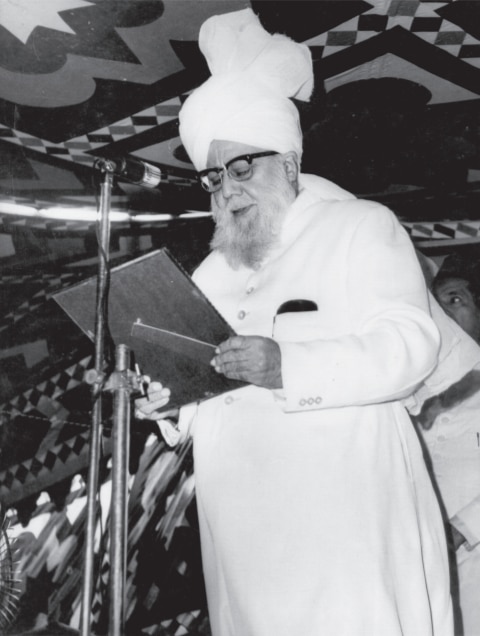
Then, Huzoorrh said:
“Waqf-e-Jadid also needs money for carrying out its work, and members [of the Jamaat] do pay attention to this. May Allah the Almighty reward them for this. According to their report, in 1979-80, there was an increase of almost 99,000 [rupees in chanda for Waqf-e-Jadid].” (Khutbat-e-Nasir, Vol. 9, p. 7)
Huzoorrh further said that although there was an increase in the overall chanda, improvements were needed in the chanda collection of Daftar Atfal. Huzoorrh added that we needed to move forward from every aspect, and with more passion and zeal.
During his Friday Sermon on 1 January 1982, Hazrat Khalifatul Masih IIIrh stated that one of the important purposes of Waqf-e-Jadid was the tarbiyat of rural jamaats. The number of rural jamaats was increasing every year, so the need for waqifeen was also increasing.
Huzoorrh continued by saying that at the time, there were less than a hundred waqifeen-e-Waqf-e-Jadid, which did not even fulfil one-twentieth of the needs. So, Huzoorrh urged the youth of the Jamaat who fulfilled the academic and tarbiyat criteria, to present themselves for Waqf-e-Jadid.
Huzoorrh said that the responsibility of waqifeen-e-Waqf-e-Jadid was to create strong foundations by teaching the basics and training people in such a way that when they are given teachings at a higher level, they are ready to accept it, instead of considering it a burden.
In short, the seed of Waqf-e-Jadid which was sown by Hazrat Musleh-e-Maudra, continued to flourish during the time of Hazrat Khalifatul Masih IIIrh, and it still continues to flourish, and will continue to do so, insha-Allah.

